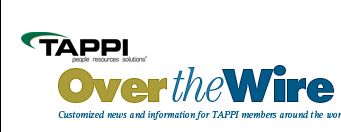Mercury Paper to Expand Operations, Relocate N.A. Headquarters to Virginia
 Print this article | Send to Colleague Print this article | Send to Colleague
Mercury Paper, part of the Sinar Mas Group, Shanghai, China, will invest $21.2 million to expand its current tissue and toweling facility in Shenandoah County, Va., USA, and relocate its North American headquarters to the site, creating 150 new jobs in the process.
Announcing the expansion plans recently, Virginia Governor Bob McDonald noted that "Mercury Paper is quickly establishing a significant North American presence on the East Coast. To expand its current Shenandoah County facility and relocate its U.S. headquarters at the same time signifies Mercury Paper's faith in its continued success in the Commonwealth. This project represents the largest Chinese investment in Virginia and continues to support our initiative for a full–time marketing presence in mainland China."
Mercury Paper is a paper towel and tissue products company located in Strasburg, Va. Its raw materials come from sustainable pulpwood plantations in the Pacific Rim. Currently, the companies used by Mercury Paper plant more than 1.5 million trees every day to maintain a supply of renewable, eco–friendly virgin fibers. These trees, which mature in six to seven years, are continuously planted and replanted in anticipation of future paper consumption needs, Governon McDonald pointed out.
The Virginia Economic Development Partnership worked with Shenandoah County and the Virginia Inland Port to secure the project for Virginia. Governor McDonnell approved a $250,000 grant from the Governor's Opportunity Fund to assist Shenandoah County with the project. The Virginia Department of Business Assistance will provide training assistance through the Virginia Jobs Investment Program. The Virginia Department of Transportation also assisted with the project.
The facility's distribution center was constructed several months ago and the tissue converting lines are currently arriving. Initial capacity to come online later this year reportedly will be 3,500 tons per month, with an additional 3,500 tons of capacity added by year end. Additional production lines next year will boost production to some 10,000 tons per month.
   
|

